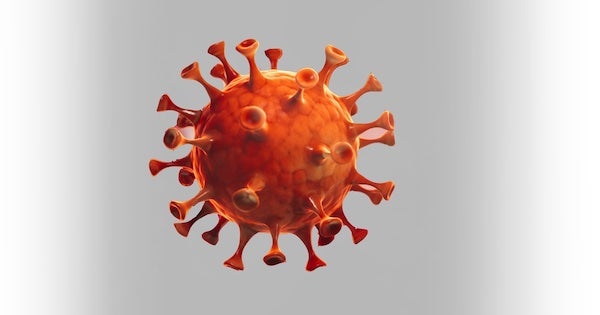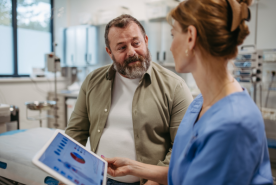February 04, 2021
Kidney disease and COVID-19 don’t go well together. If you have kidney disease, do all that you can to prevent contracting it.
Kidney disease may not increase your risk of getting the coronavirus, but it does put you at an increased risk of developing life-threatening complications from COVID-19.
Since the coronavirus arrived in the United States, people with kidney failure, either on dialysis or with a transplant, have had one of the highest rates of hospitalization for COVID-19 among all people on Medicare.
And to make matters worse, some people are entering the hospital with the virus but coming out as new kidney patients because the coronavirus can seriously damage kidneys and cause acute kidney injury. Protecting against COVID-19 is a step toward protecting your kidneys.
The benefits outweigh the risks
Most doctors agree that the benefits of the COVID-19 vaccine for people with kidney disease at any stage, including those on dialysis and those with a kidney transplant, are much greater than the risk of serious complications from the virus. All kidney patients should talk to their doctor about getting the COVID-19 vaccine today.
Dialysis patients who contract COVID-19 are at extremely high risk of short-term mortality, possibly higher than 20 percent, and therefore should speak to their doctors immediately about the vaccine.
What should you do?
Follow all guidelines to avoid COVID-19 and speak to your doctor about those measures and the vaccine. The U.S. Centers for Disease Control and Prevention (CDC) recommend the following:
- Minimize the chance of exposure. Avoiding gatherings of people and practicing social distancing can help reduce the chances of exposure to the virus. Make sure to comply with any orders your state has issued about sheltering in place or staying at home.
- Promote the use of everyday preventive actions. Clean your hands, cover coughs and sneezes, and follow recommendations or local or state orders for wearing masks to reduce the spread of infection.
- Protect high-risk populations. Certain groups of people have a higher risk of developing serious illness from COVID-19. To keep our families and communities safe and healthy, it is important to take steps to protect older adults, people with underlying health conditions, people facing homelessness, incarcerated or detained people, and people who work in healthcare or other critical infrastructure jobs.
The bottom line for kidney patients
According to the CDC, having kidney disease of any stage increases your risk for severe illness from COVID-19. The CDC recommends that patients with kidney disease should:
- Continue your medicines and your diet as directed by your healthcare provider.
- Make sure that you have at least a 30-day supply of your medicines.
- Stay in contact with your healthcare team as often as possible, especially if you have any new signs or symptoms of illness. Also reach out to them if you can’t get the medicines or foods you need.
- If you don’t have a healthcare provider, contact your nearest community health center or health department.
- Have shelf-stable food choices to help you follow your kidney diet.
- If you are on dialysis:
- Contact your dialysis clinic and your healthcare provider if you feel sick or have concerns.
- Do NOT miss your treatments.
- Plan to have enough food on hand to follow the KCER 3-Day Emergency Diet Plan for dialysis patients in case you are unable to maintain your normal treatment schedule.
To learn more
Learn more about preventing COVID-19.

















